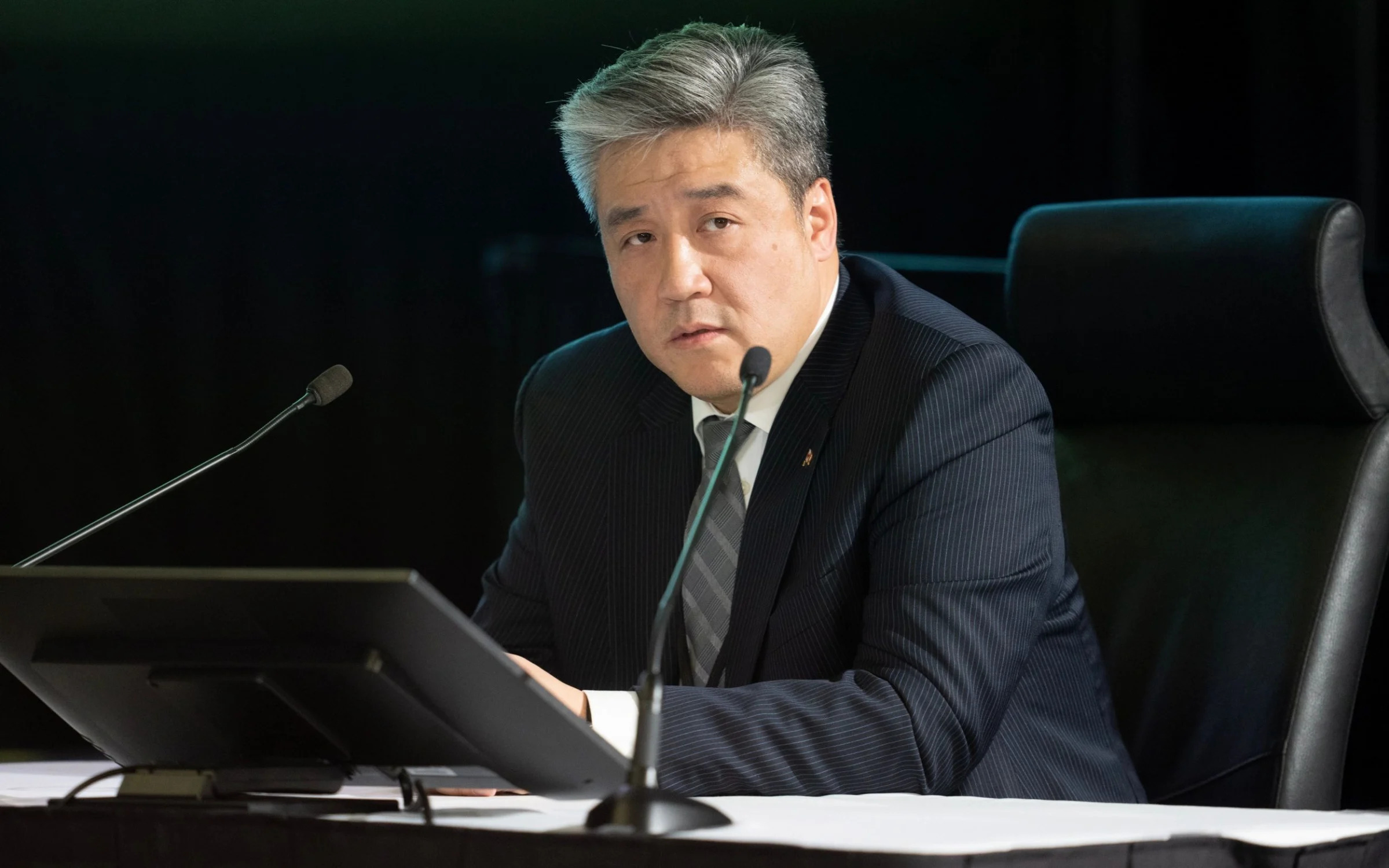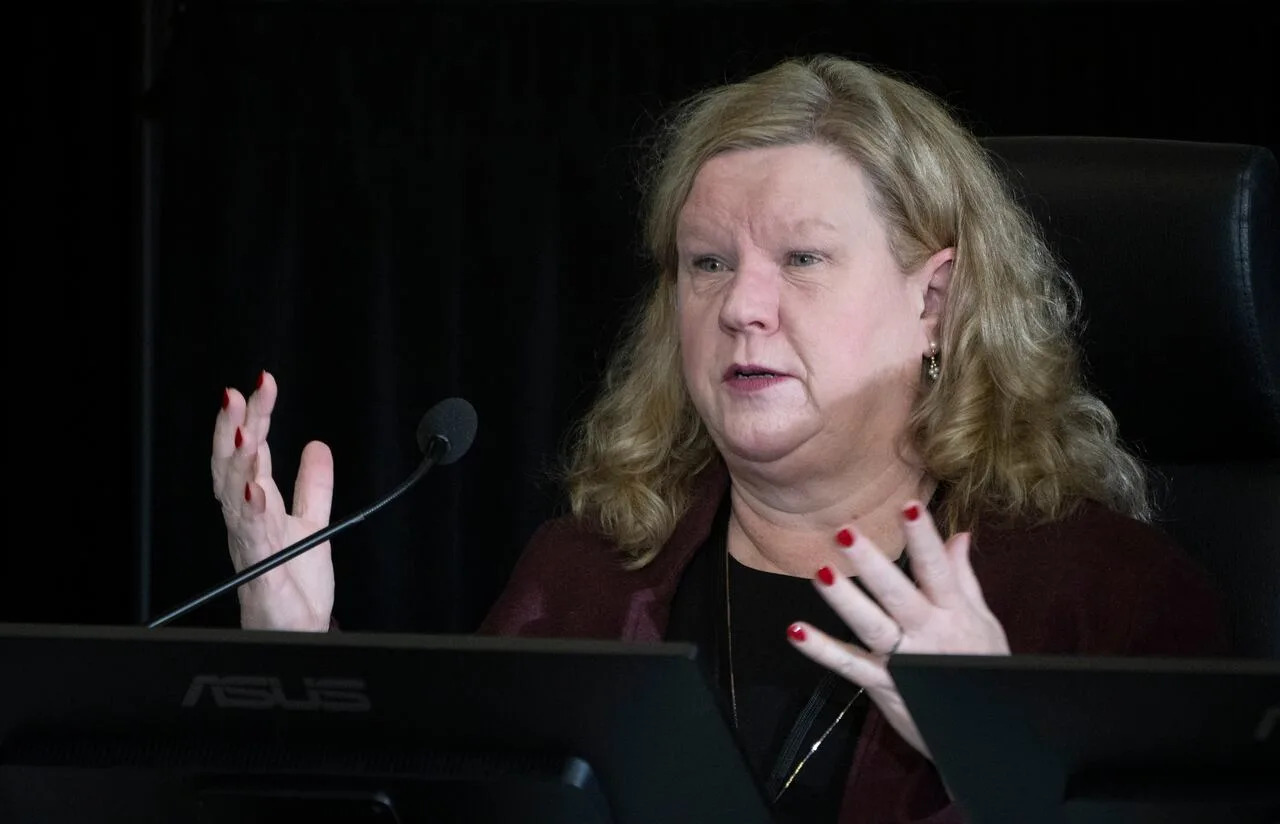Beijing sent busload of Chinese students to back Canadian Liberal politician, say officials

Beijing allegedly sent a bus of Chinese students to support a Canadian Liberal politician as part of a campaign of election interference in 2019 and 2021, according to an official briefing.
Canadian intelligence documents indicate that Beijing helped Chinese students support Liberal politician Han Dong -
Previously classified documents have been unveiled as part of a public inquiry into foreign meddling in Canadian elections.
The bus allegation is included in a 2023 Canadian Security Intelligence Service (CSIS) briefing for the prime minister’s Office on how Beijing had “clandestinely and deceptively interfered in both the 2019 and 2021 general elections”, reported The Globe and Mail.
The document was in response to media reports that China was running a campaign to influence the 2021 poll. It suggested Beijing sought to inflict damage on the Conservative Party, which it viewed as more hawkish towards the Chinese Communist regime.
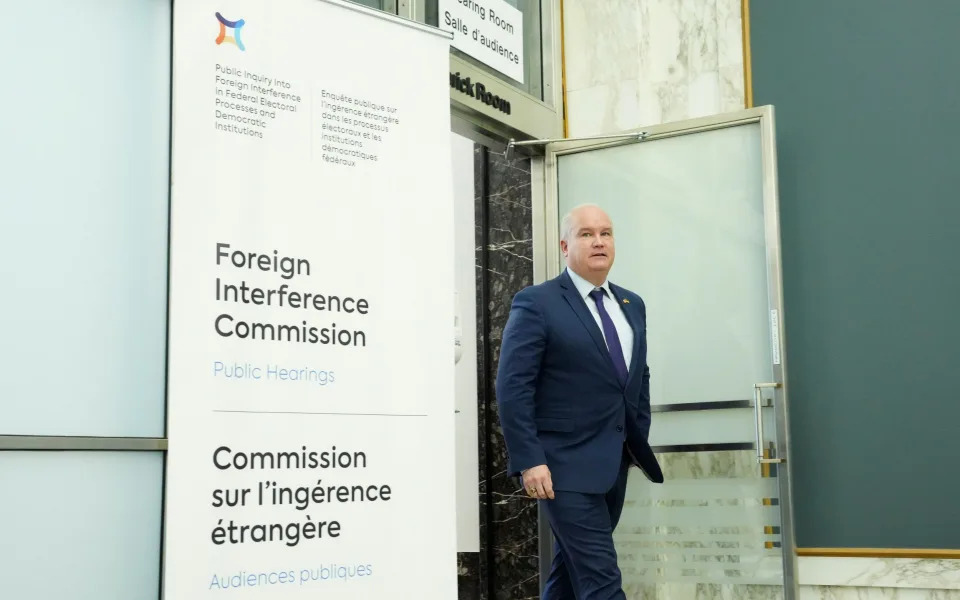
In 2021, China’s foreign interference activities “were almost certainly motivated by a perception that the Conservative Party of Canada was promoting a platform that was perceived to be anti-PRC”, the document said, referring to the People’s Republic of China.
It added that online and media activities were aimed at discouraging Canadians, particularly of Chinese heritage, from supporting Conservative politicians, including leader Erin O’Toole.
Justin Trudeau, the prime minister, is set to testify later on Wednesday. He has previously publicly dismissed foreign interference reports and accused the Conservatives of being sore losers.
The intelligence documents indicate Beijing was behind the chartering of a bus full of Chinese students who were dispatched to help Liberal politician Han Dong secure his party nomination.
It suggests the students were pressured to do so and warned that “their student visas would be in jeopardy and that there could be consequences for their families back in the PRC” if they declined to support him.
Mr Dong has denied knowledge of anything nefarious. The Liberal Party also allows international students to vote in party nominations in the constituencies where they live.
Canadian intelligence officials considered it likely that China had provided $250,000 (£145,000) for influence operations during the 2019 poll.
The document states that multiple cabinet ministers and senior officials had been briefed on the allegations of Chinese operations.
‘Existential threat ’
“Until [foreign interference] is viewed as an existential threat to Canadian democracy, and governments forcefully and actively respond, these threats will persist,” it added, according to the Globe.
The briefing adds, however, that the task force assigned to monitor foreign interference concluded that the Chinese activities did not affect the overall election result.
The CSIS has also warned that a series of redacted documents tabled before the inquiry may include uncorroborated information that is single-sourced or incomplete and requires further investigation.
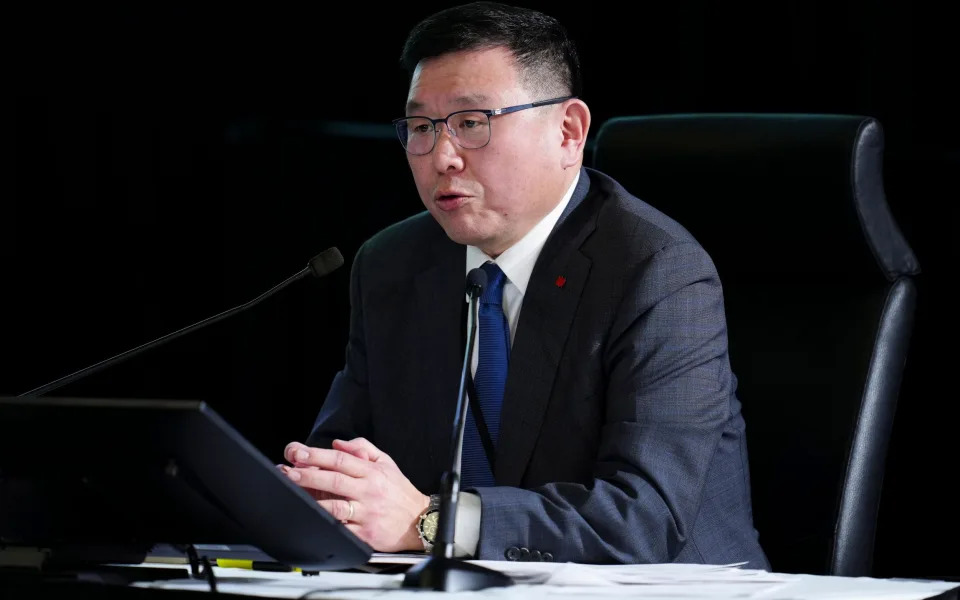
China has previously denounced accusations of interference as “baseless”.
Mr O’Toole and Conservative MP Kenny Chiu, who has also been named as a possible target for disinformation, have both testified in the inquiry.
Last week, Mr O’Toole said he believes Chinese meddling cost his party up to nine seats, although he concedes that it did not change the outcome of the election.
Trudeau not briefed on some foreign interference concerns about 2021 election, inquiry hears
Janice Charette, who served as Clerk of the Privy Council from March 2021 until June of 2023, testifies before the Public Order Emergency Commission in Ottawa in November, 2023.
Prime Minister Justin Trudeau was not briefed in 2021 about possible foreign interference efforts targeting Liberal and Conservative candidates during the 2021 federal election, the Foreign Interference Commission heard Tuesday.
Janice Charette, who sat on a five-person panel tasked with determining if Canada's election was at risk in 2021, said Tuesday that she and the director of CSIS decided to brief the Liberal Party directly about foreign interference concerns during the 2021 election.
Charette said that that briefing, given on Sept. 12 2021, passed on classified information to the Liberal Party's representative to the Security and Intelligence Threats to Elections (SITE) Task Force.
Charette said Tuesday that the decision to brief the party was made by her and the CSIS director in an effort to "mitigate" possible efforts by China to interfere in the election. She said Prime Minister Justin Trudeau was not briefed by her or the Privy Council Office.
"I did not brief the prime minister on this, either during the election or after the election. And in fact I believe the first briefing of the prime minister took place not until 2023, by the Privy Council Office," Charette told the commission.
Charette also said no other branch of the public service briefed Trudeau on the 2021 issue, and she knew that because she was the point of contact for the prime minister.
"He may have had other briefings through the Liberal Party" that she didn't know about, she said.
The Chinese government has been accused of attempting to influence the results of the 2019 and 2021 federal elections and of meddling in Canada's affairs.
The Foreign Interference Commission inquiry, led by Quebec judge Marie-Josée Hogue, is hearing testimony from more than 40 people, including community members, political party representatives and federal election officials.
The commission is probing actions foreign states may have taken to interfere with those elections and the flow of information within the government about foreign interference efforts.
Liberal Party notified of foreign interference twice
The panel of five Charette sat on in 2021 is a group of senior bureaucrats tasked with monitoring threats to elections and deciding whether to issue a public warning if they feel the electoral process is under threat from foreign interference.
Nathalie Drouin, who was deputy minister of justice and deputy attorney general during the 2019 federal election and a panel member at that time, told a commission hearing Monday that foreign interference concerns about the riding nomination contest in Don Valley North in 2019 were also conveyed directly to the party during the 2019 federal election.
The 2019 concerns involved international students being bused to the riding of Don Valley North to vote in the Liberal nomination contest, and financial allegations that were referred to the Commissioner of Canada Elections.
The Don Valley North riding race normally would have fallen outside the panel's remit, but in this case it overlapped with the 2019 federal election.
Drouin told the commission Monday that concerns about Don Valley North were also forwarded to the commissioner of Canada Elections because they had a financial element to them.
Conservatives' 2021 concerns
Last week, Walied Soliman, the Conservative campaign co-chair for the 2021 election, told the commission that after that election, his party provided its documented concerns to the SITE Task Force. Those concerns, related to possible efforts by China to interfere in the 2021 election, were reviewed by the panel of five.
Last week, former Conservative leader Erin O'Toole told the commission those concerns involved Kenny Chiu, then the Conservative MP for the B.C. riding of Steveston—Richmond East.
"The level and volume and tone of misinformation towards Mr. Chiu was horrendous," O'Toole said. "He was fearful for his own well being and that of his family and it was a personal attack of a racially motivated nature, suggesting he was a race traitor."
Charette, who was the Clerk of the Privy Council during the 2021 federal election in her role as a panel member, told the commission Tuesday that she received a detailed briefing note in March of 2023 about the concerns raised by the Conservatives, the process followed to assess those concerns and how those efforts were communicated back to the Conservative Party.
Clerk did not inform Trudeau in 2021
Charette said none of the members of the panel of five in 2021 felt the Conservative Party's concerns raised to SITE suggested a threat Canada's ability to hold free and fair elections. She said she also did not inform Trudeau in 2021 about the concerns.
"I did not advise the prime minister at the time of this," Charette said Tuesday. "I didn't think there was any information that required his action and he was generally aware of the situation in terms of the capabilities here, so I didn't think there was anything new to bring to his attention."
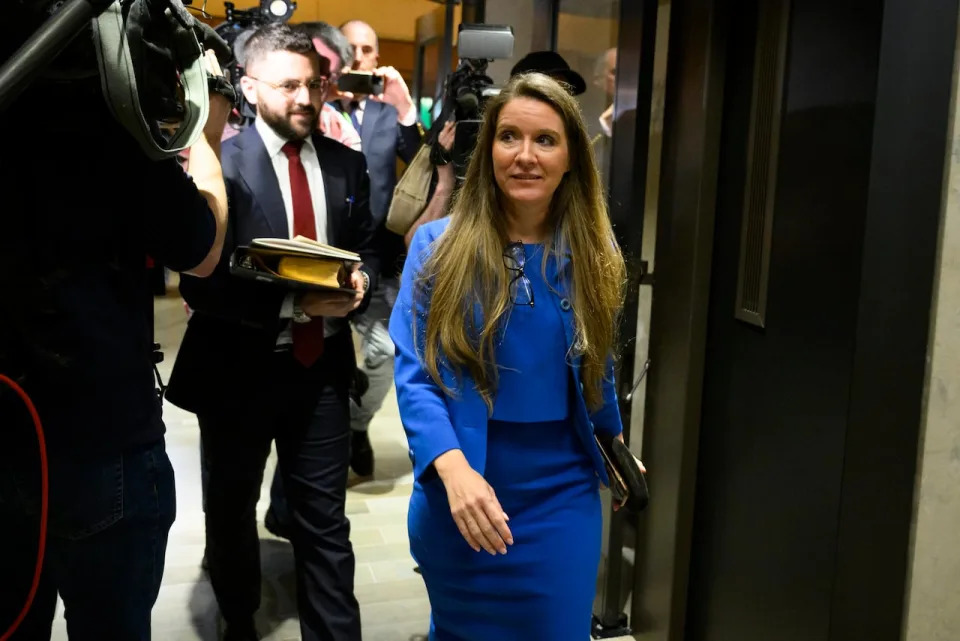
Katie Telford, chief of staff to Prime Minister Justin Trudeau, departs after appearing as a witness before the standing committee on procedure and House affairs studying foreign election interference on Parliament Hill in Ottawa last April. (Justin Tang/The Canadian Press)
Today's testimony came a day after the inquiry saw a briefing document prepared for the PMO stating China meddled in the 2019 and 2021 federal elections.
The CSIS document says the intelligence agency knew China "clandestinely and deceptively interfered" in those elections.
It says that in 2021, Chinese foreign interference activities very likely were motivated by a perception that the Conservative Party of Canada's campaign platform was anti-China.
The commission will hear from the PMO's Katie Telford, Jeremy Broadhurst, Brian Clow and Patrick Travers later today, before members of cabinet and Trudeau appear Wednesday.
- Questions and Answers
- Opinion
- Story/Motivational/Inspiring
- Technology
- Art
- Causes
- Crafts
- Dance
- Drinks
- Film/Movie
- Fitness
- Food
- Games
- Gardening
- Health
- Home
- Literature
- Music
- Networking
- Other
- Party
- Religion
- Shopping
- Sports
- Theater
- Wellness
- News
- Culture
- War machines and policy


